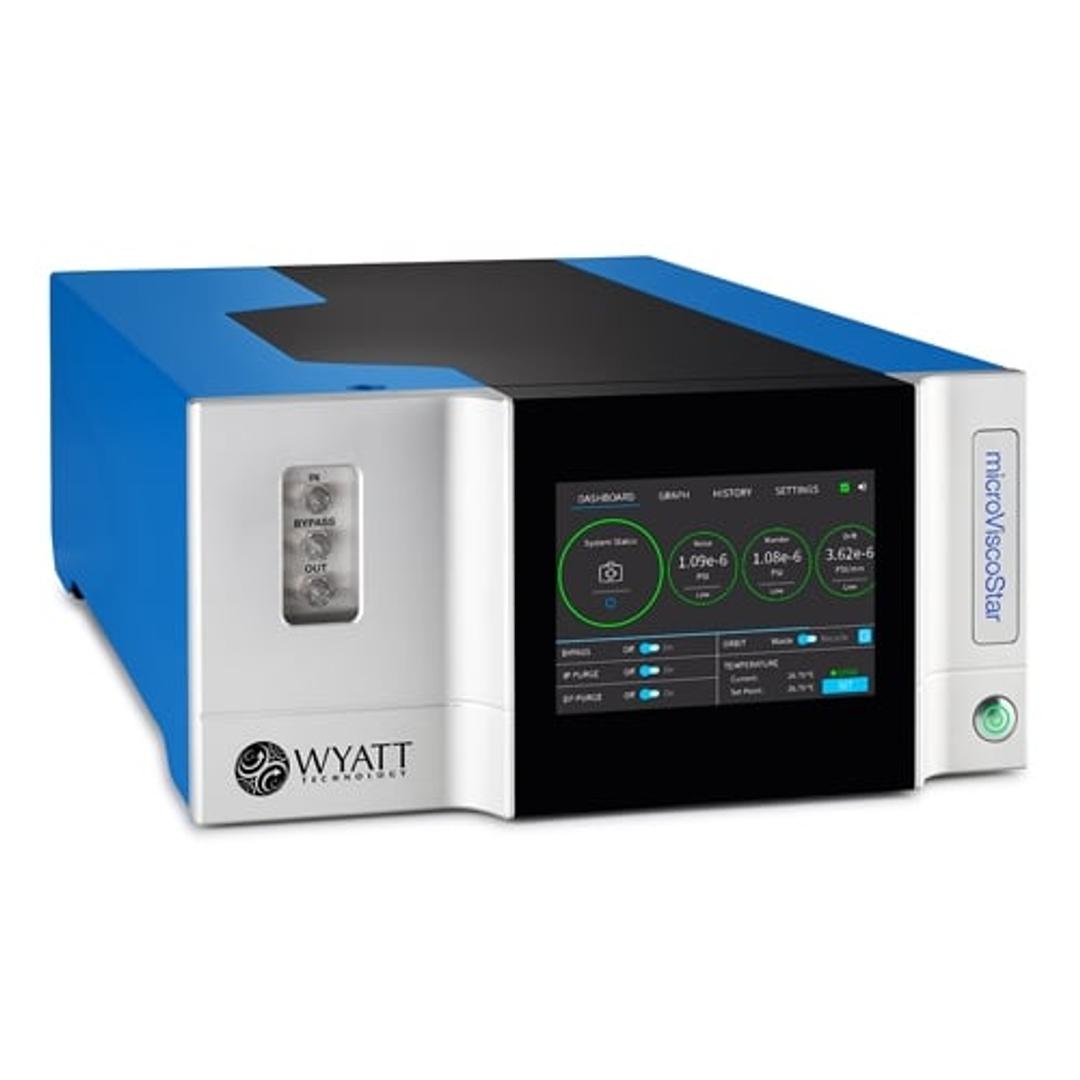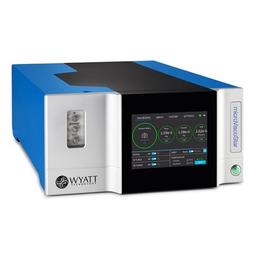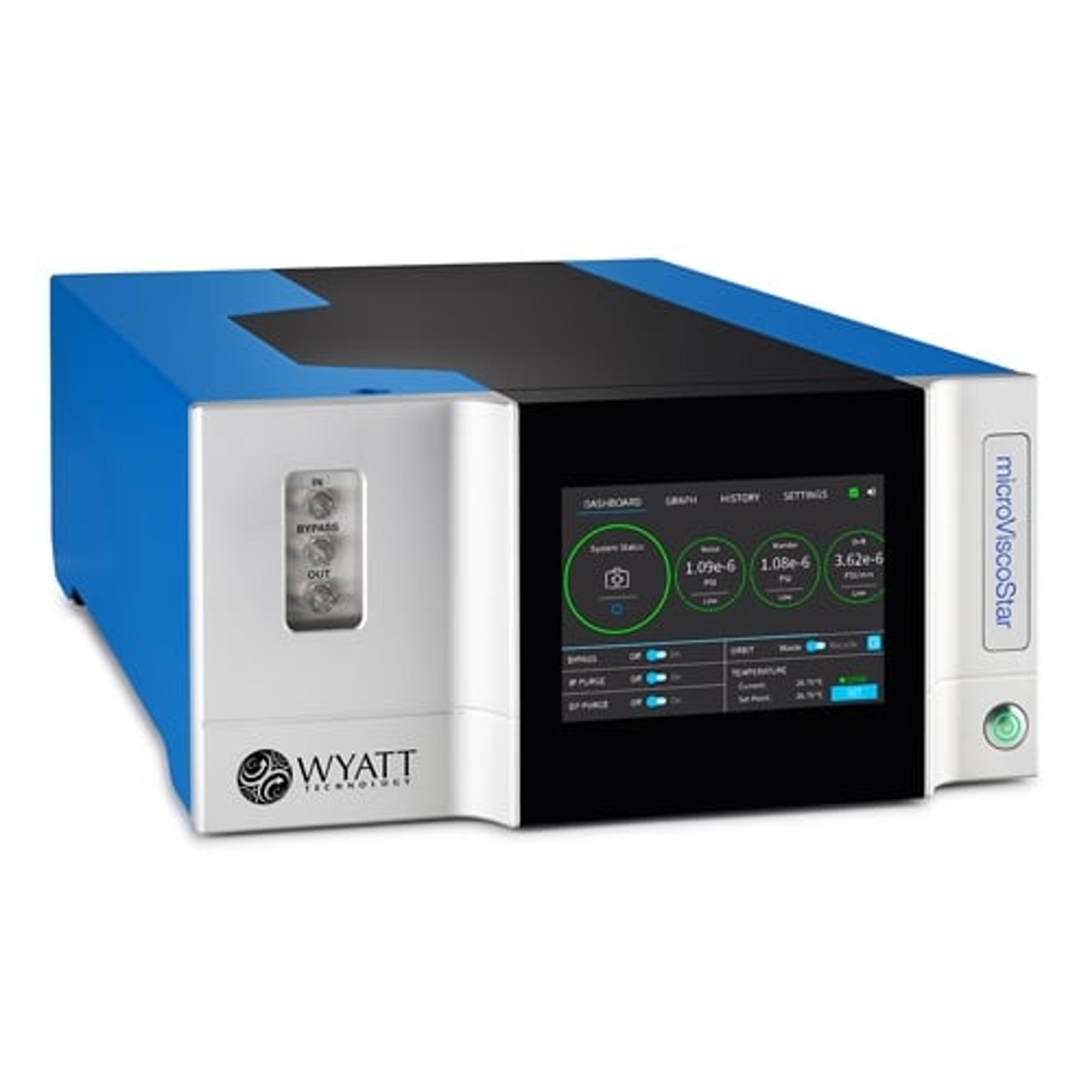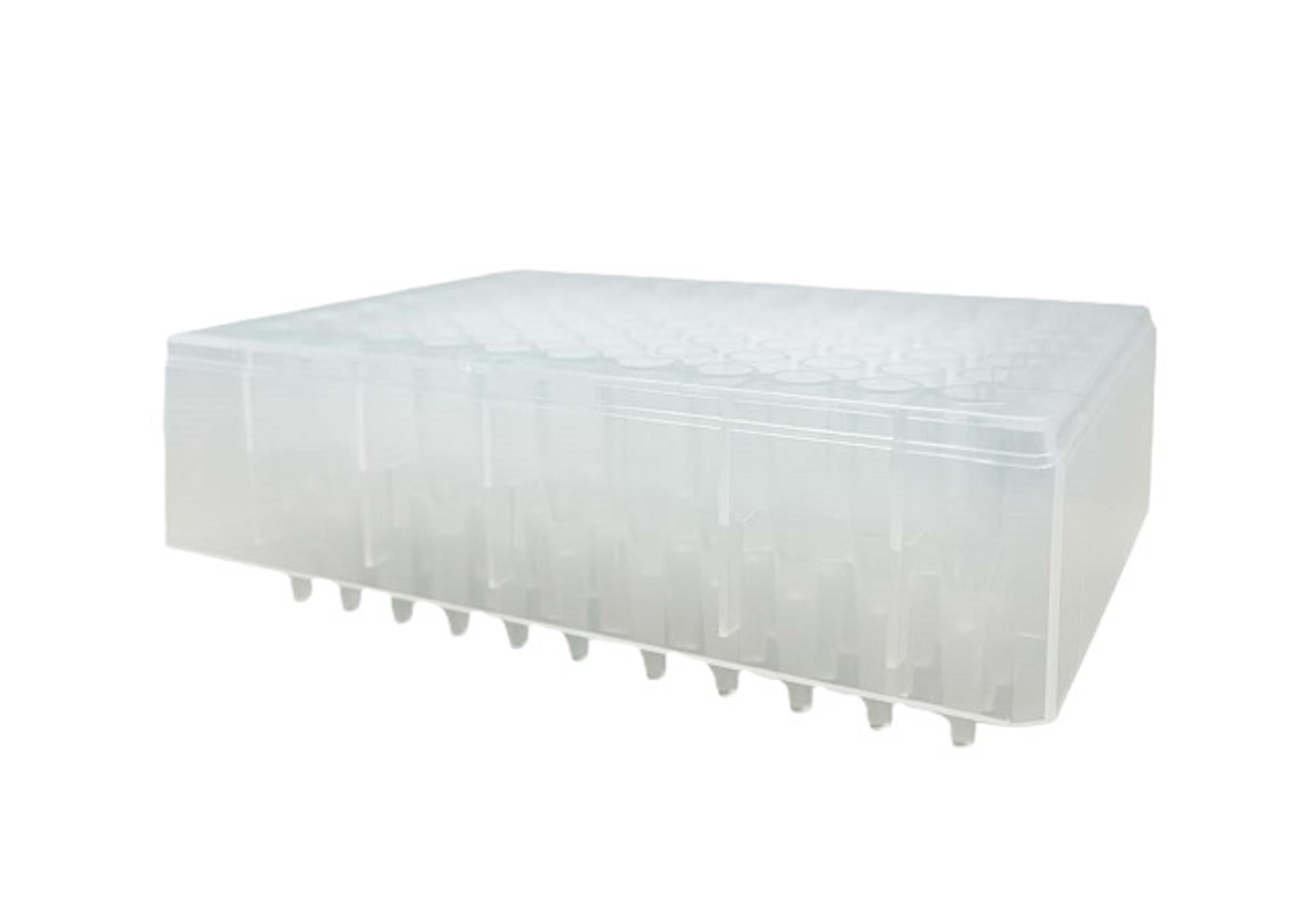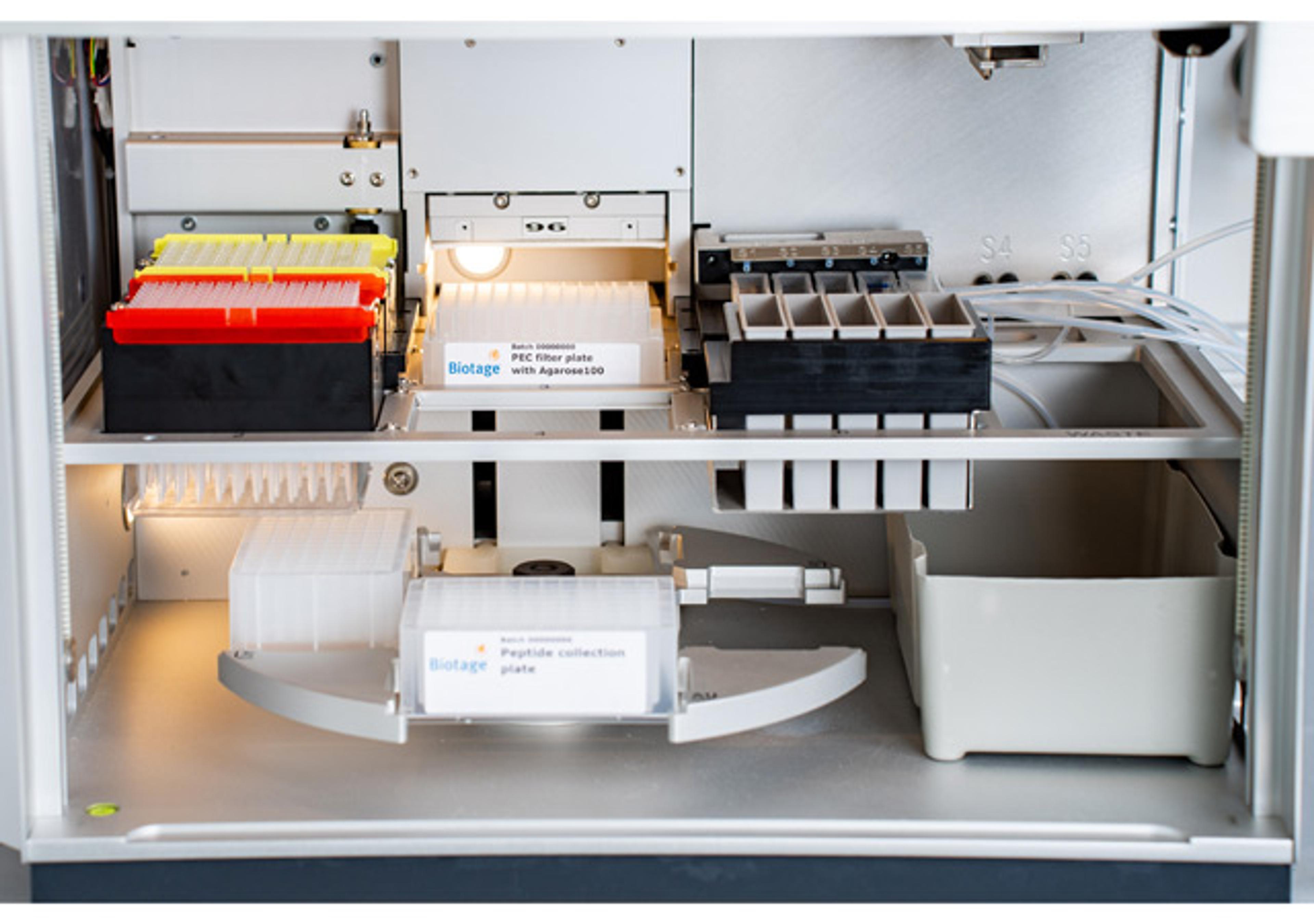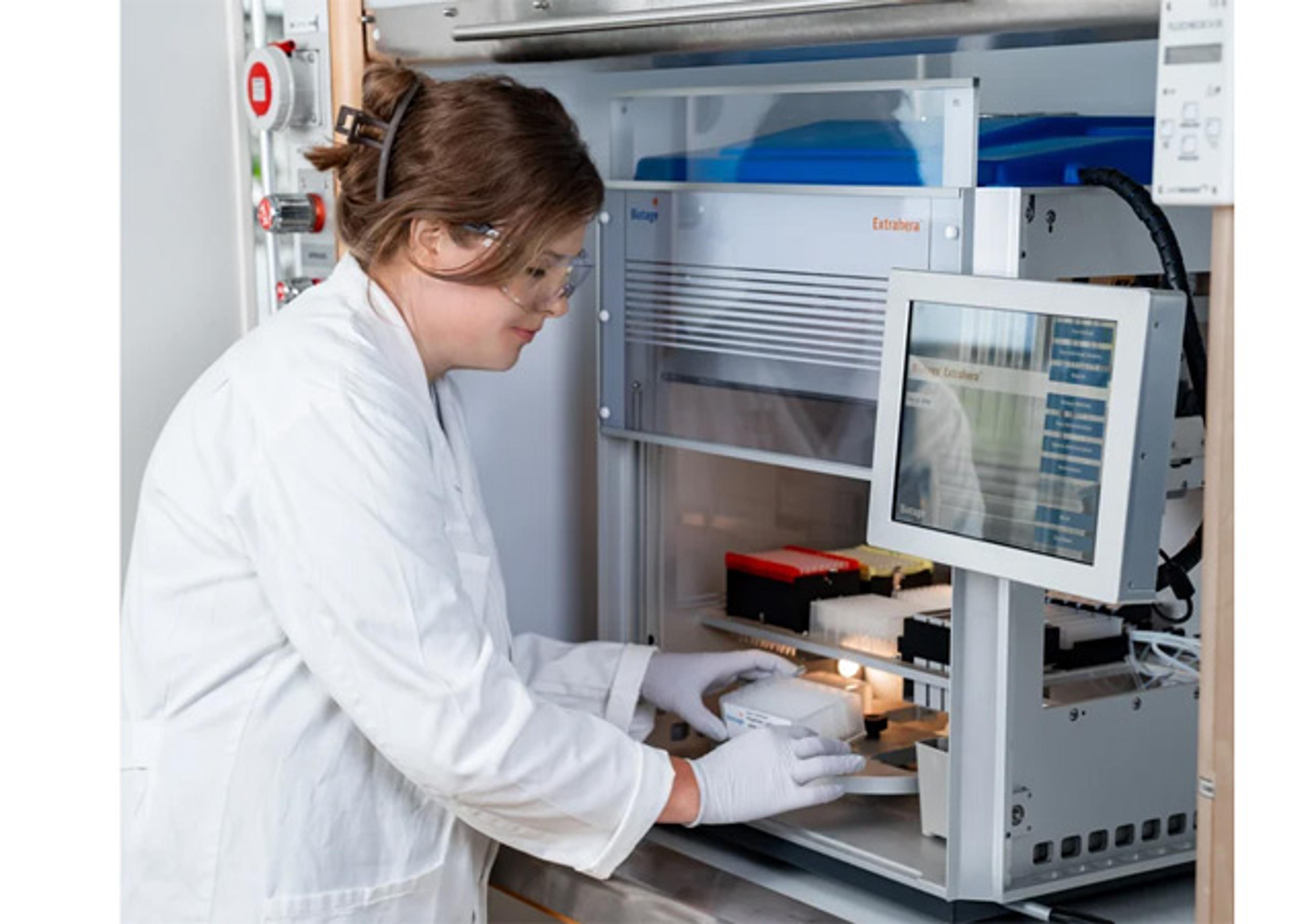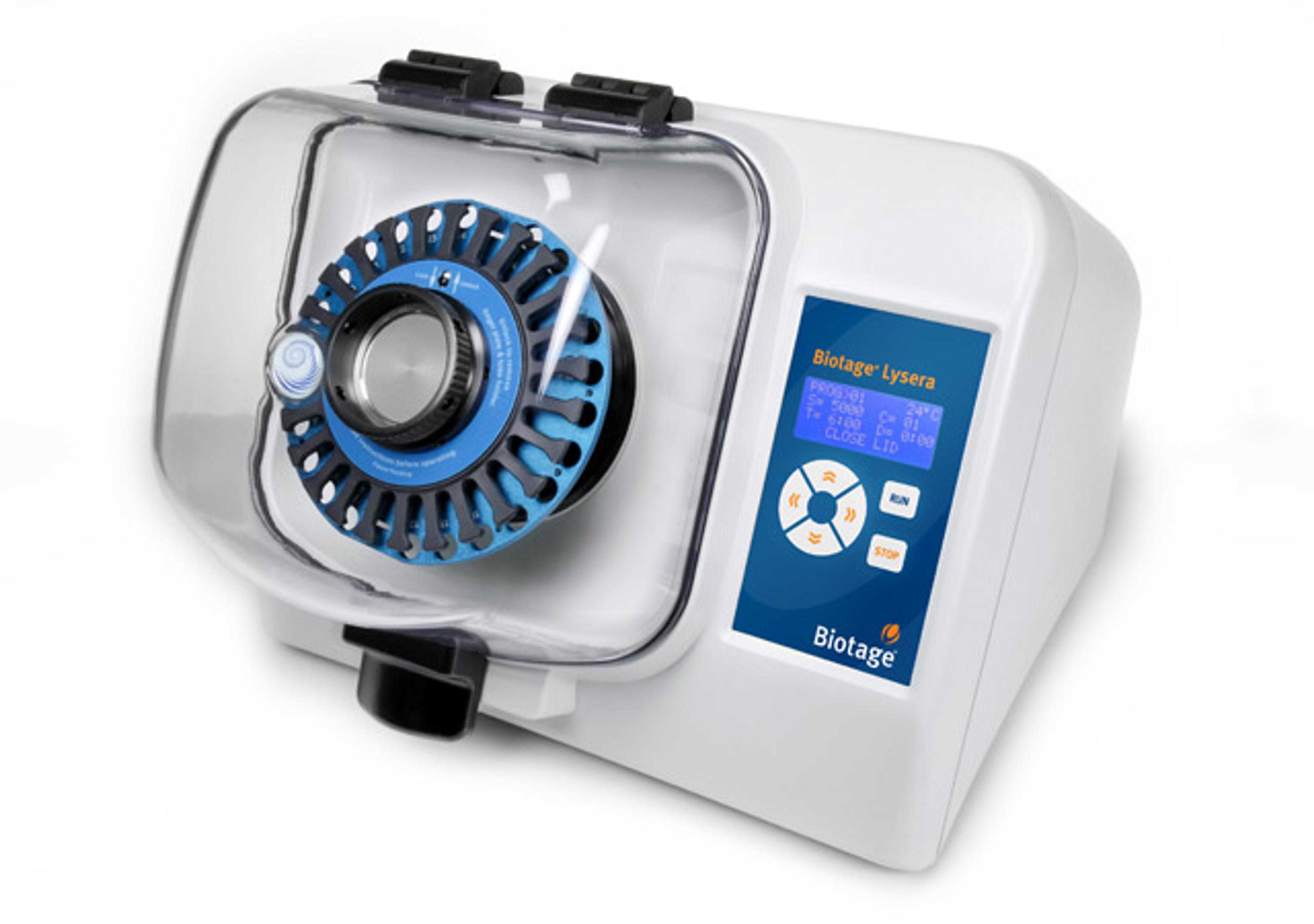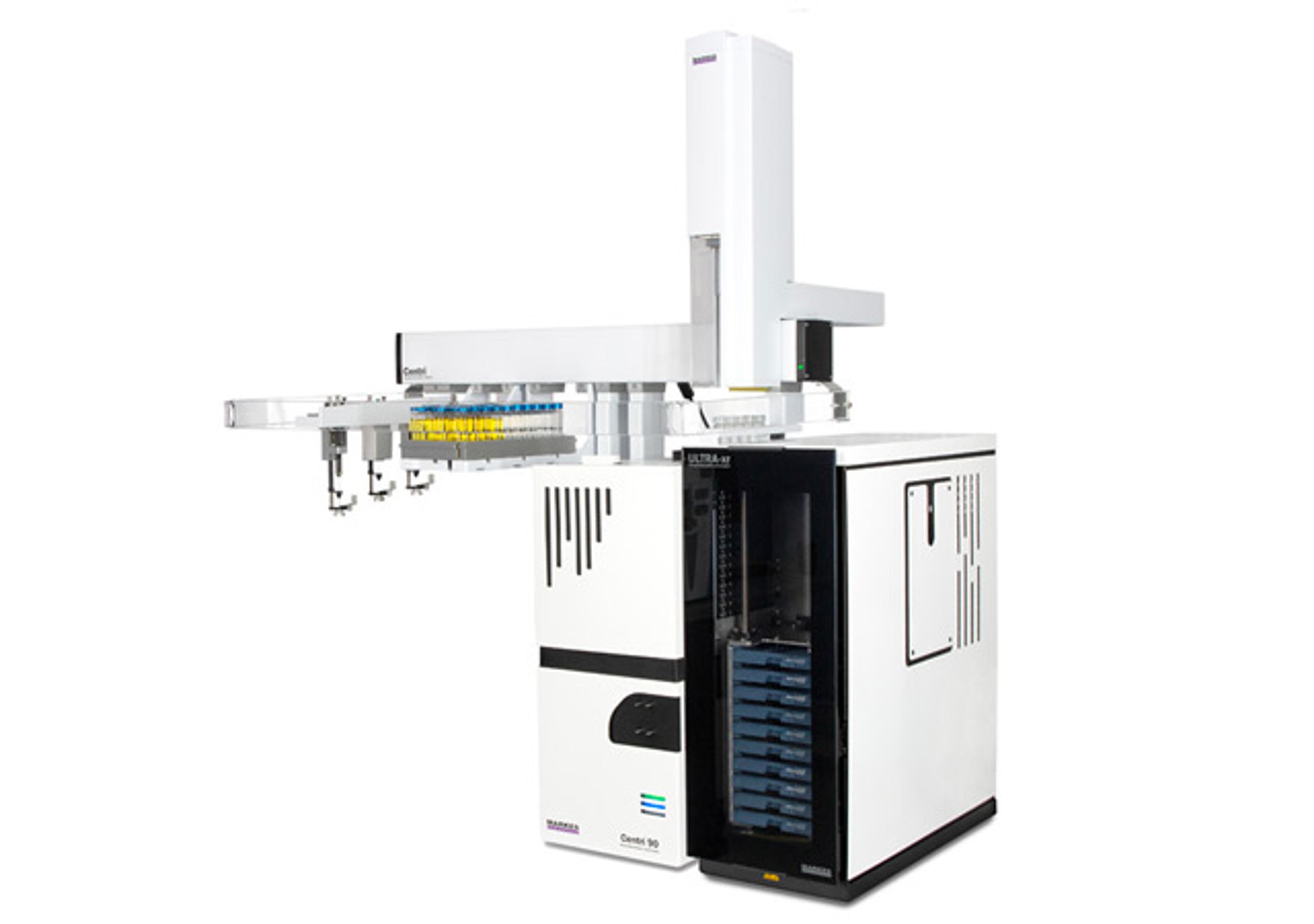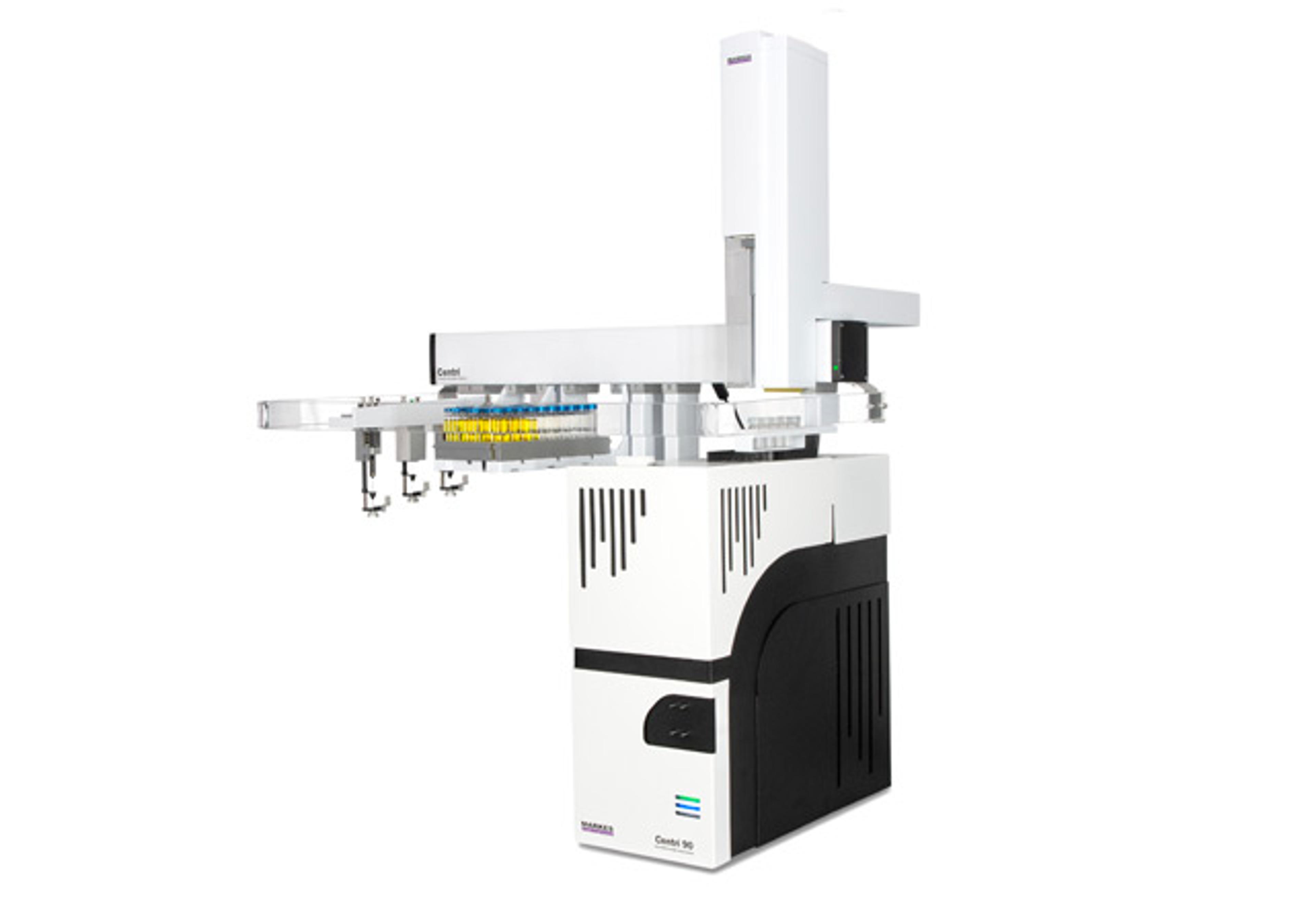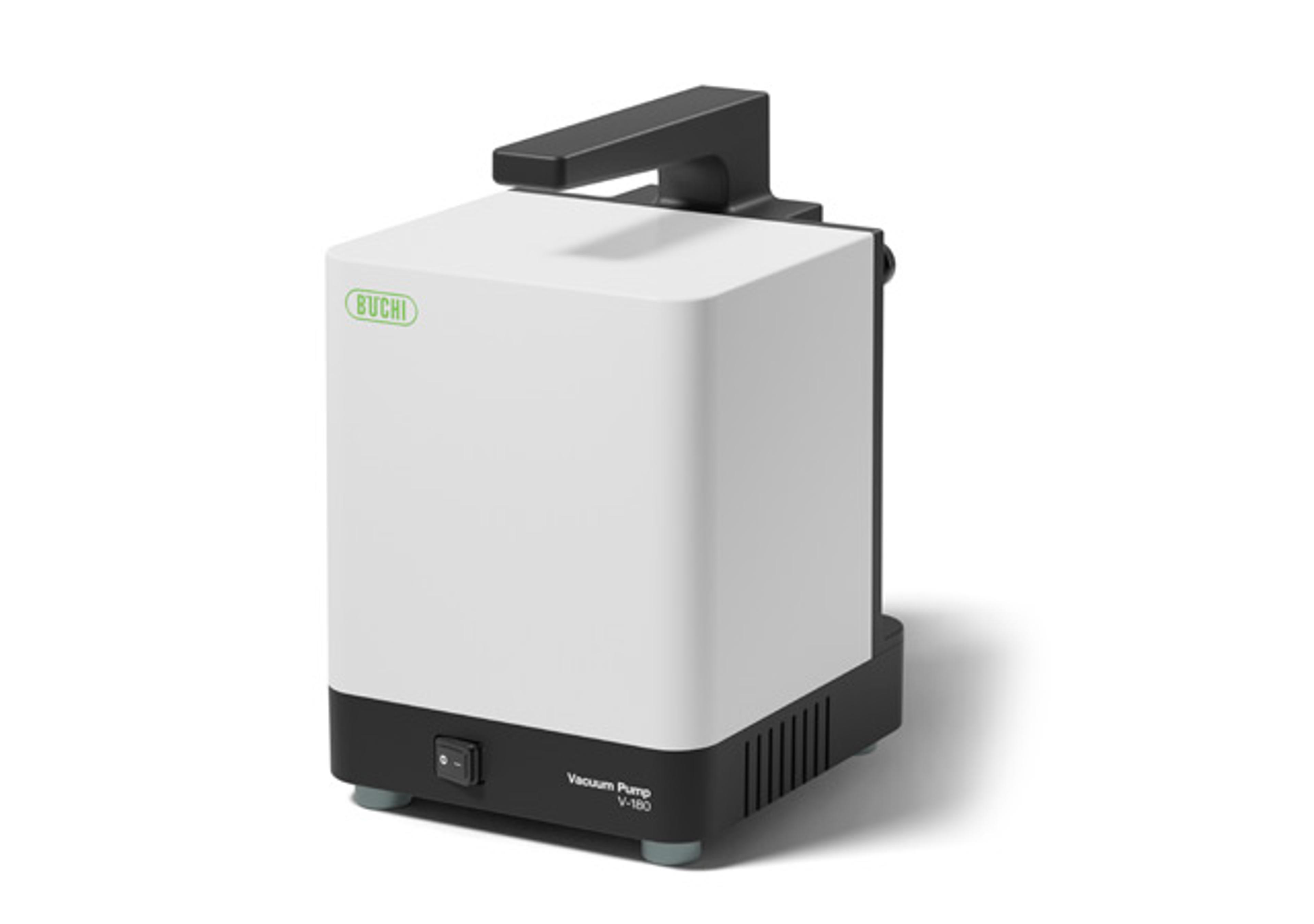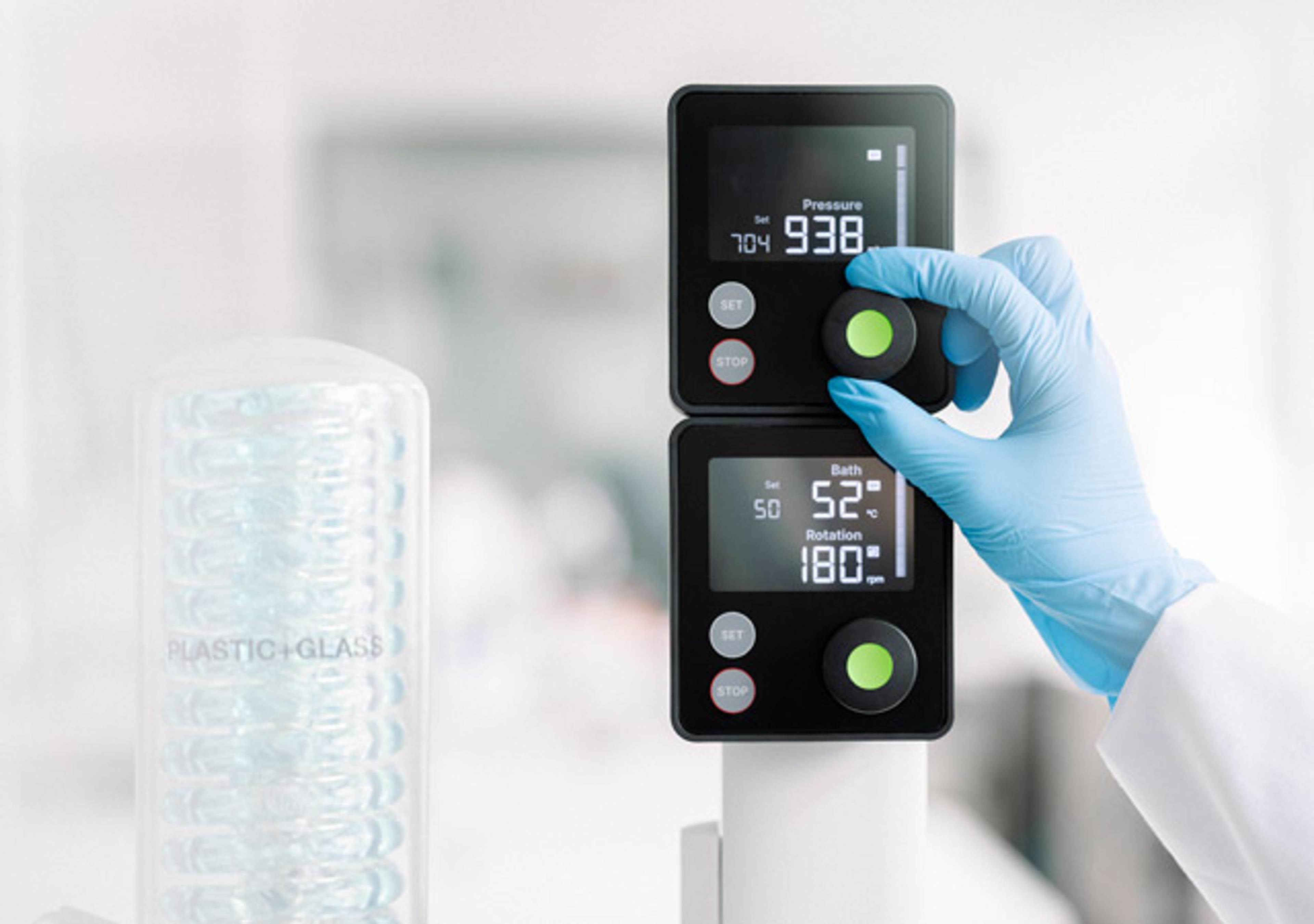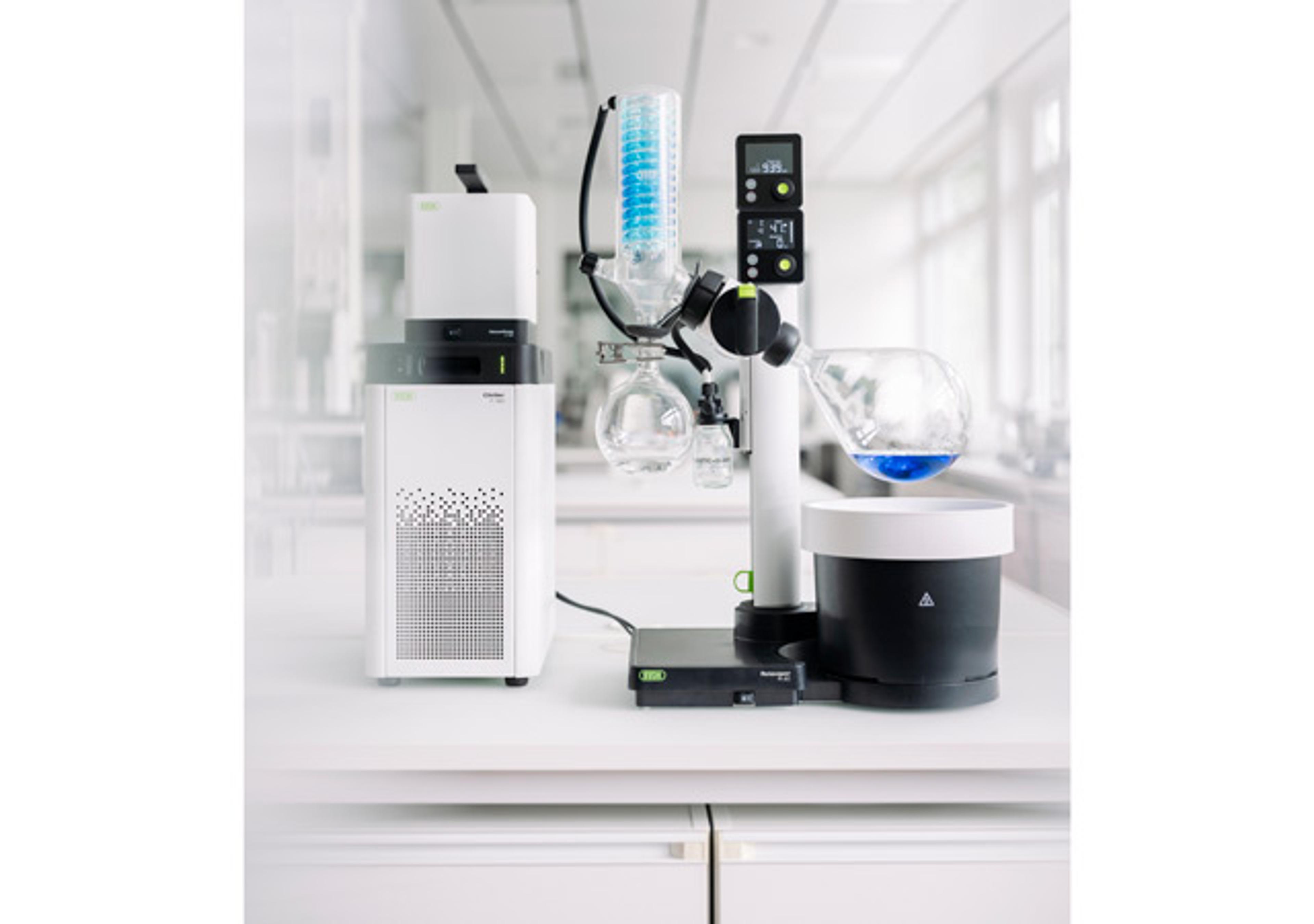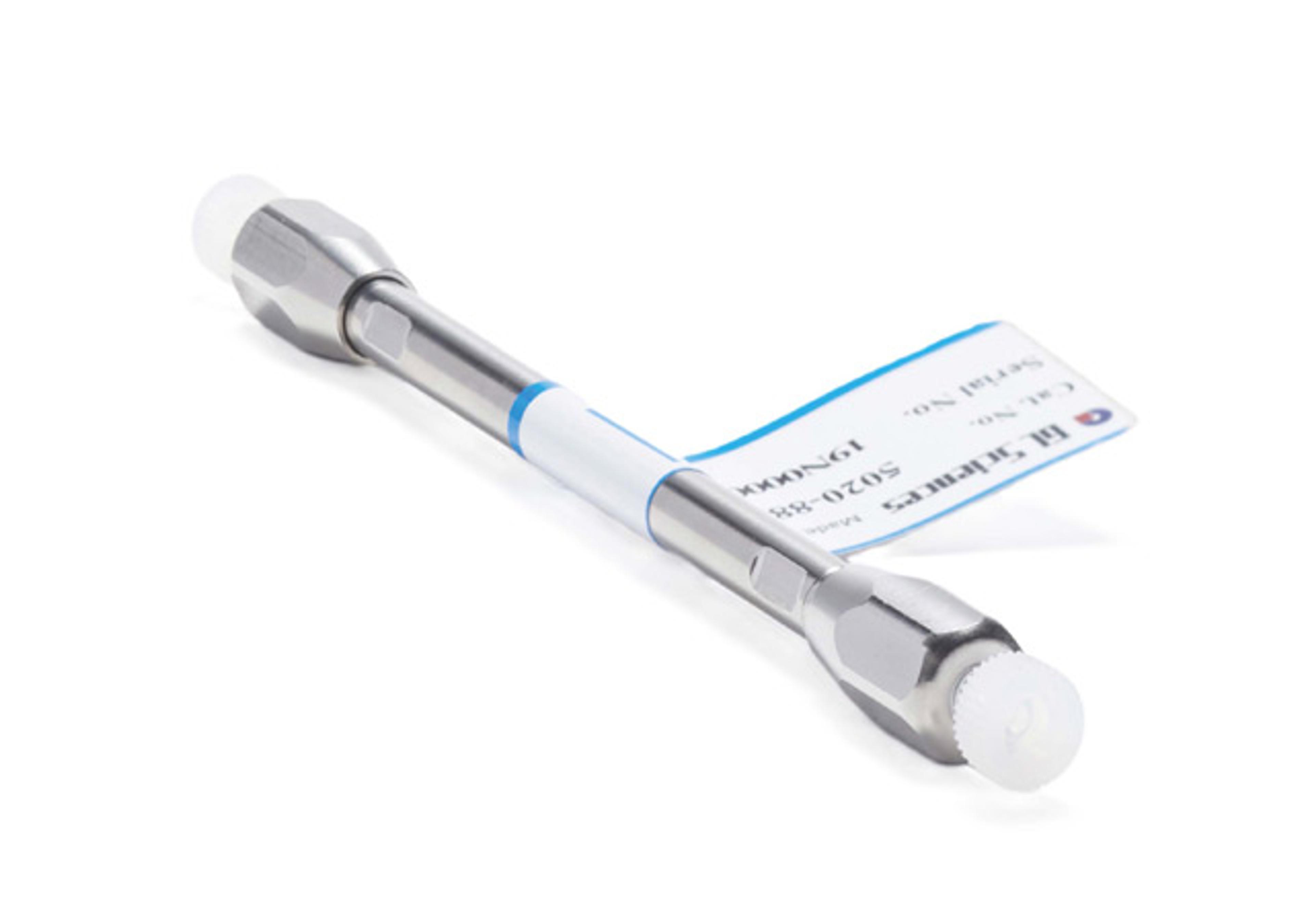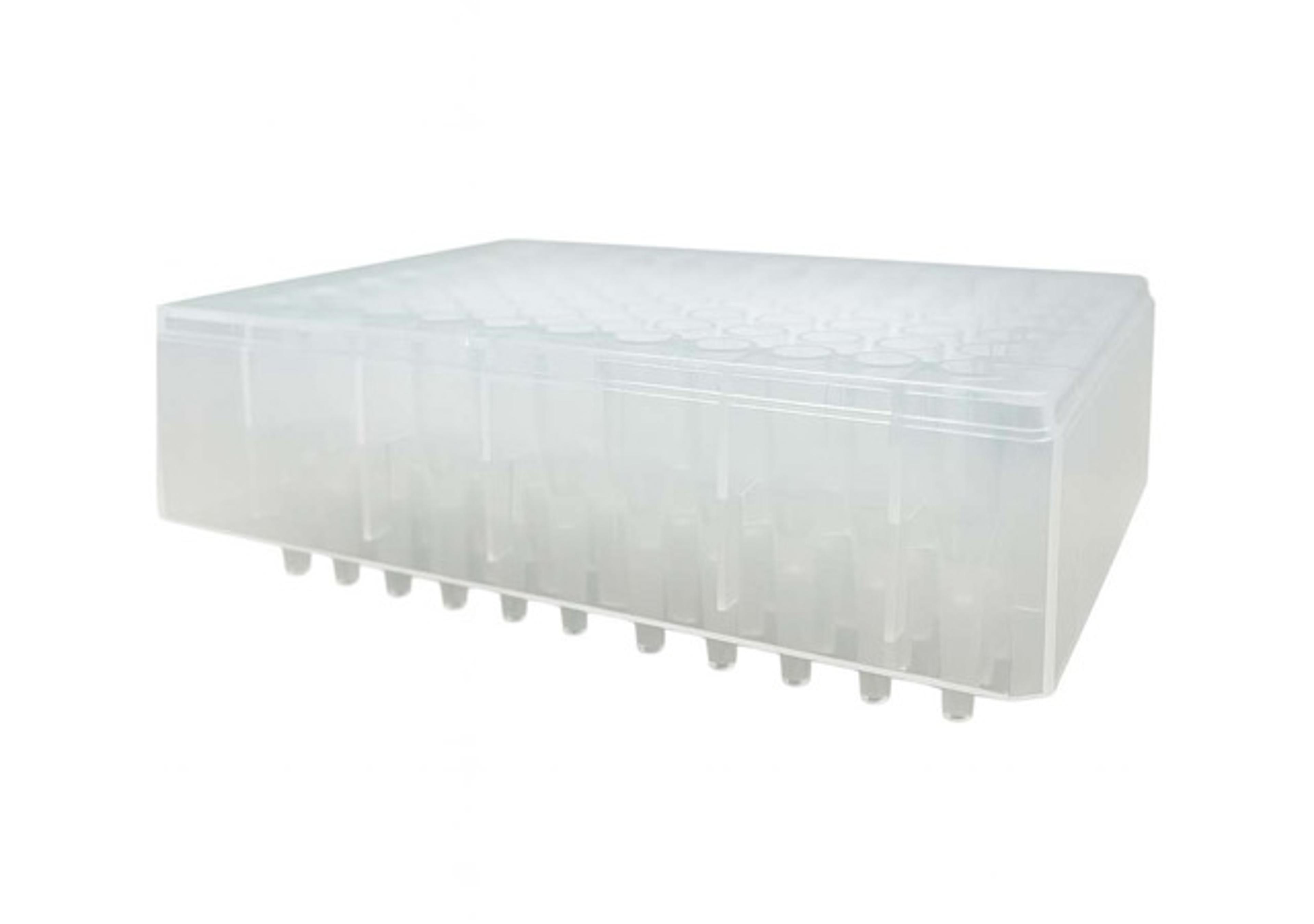microViscoStar™
Online differential viscometer for UHPLC

The supplier does not provide quotations for this product through SelectScience. You can search for similar products in our Product Directory.
Good results in combination with Acquity APC from Waters
Polymers from polycondensation polyesters and polyamides
microViscoStar is easy to use, with good results and reproductibility. It was purchased to be used with Acquity APC from Waters and results obtained are good.
Review Date: 10 Dec 2019 | Waters | Wyatt Technology
Another path to polymer and protein characterization: SEC-MALS-IV
When coupled with UHPLC size-exclusion chromatography and a compatible concentration detector such as the Optilab UT-rEX, the microViscoStar derives the intrinsic viscosity (IV) of polymers, rapidly and with minimal sample and solvent consumption. An inherently valuable physico-chemical property in itself, IV is best utilized together with molar mass information from a µDAWN multi-angle light scattering (SEC-MALS-IV) to derive the hydrodynamic radius, conformation, and branching ratio of a macromolecule in solution.
Key benefits of the microViscoStar:
- High sensitivity, equivalent to 5 ng of 100 kDa polystyrene in THF at 1.0 mL/min injected onto a standard GPC column
- High dynamic range of over 135,000:1. The full measurement range corresponds to over 13 mg/mL of 100 kDa polystyrene in THF
- Extended solvent compatibility with all-316 stainless steel transducers
- Temperature range from 4°C - 70°C for polymers or proteins that require a range of temperatures
- Minimal band broadening thanks to fast pressure transducers
- Pump pulse suppression to below 4 Pa (hardware alone) or 1 Pa (hardware + software) without loss of chromatographic resolution
- Automated capillary bridge tuning with no moving parts, to guarantee a perfectly balanced bridge, every run
- Enhanced thermal stability with drift of <1.25 Pa/hour
SEC-IV without MALS?
Yes, as much as we love MALS for optimal polymer analysis, it's true that there are occasions when it just won't fit the bill.
Universal calibration is a parallel technique to SEC-MALS for determining molecular weight, commonly used to characterize linear polymers. While universal calibration overcomes some of the problematic issues associated with column calibration by reference molecules, it does not account for non-ideal column behavior caused by chemical solute-column interactions or hyperbranching.
Universal calibration is particularly-well suited to replace MALS for:
- Strongly fluorescent polymers
- Weakly-scattering polymer/solvent systems with very low dn/dc values
The Mark-Houwink-Sakurada relationship makes use of empirical relationships between intrinsic viscosity and molar mass, specific to each polymer and solvent, to estimate molar mass from SEC-IV measurements. Of course, the best way to determine MHS coefficients is to measure them using SEC-MALS-IV and ASTRA!

